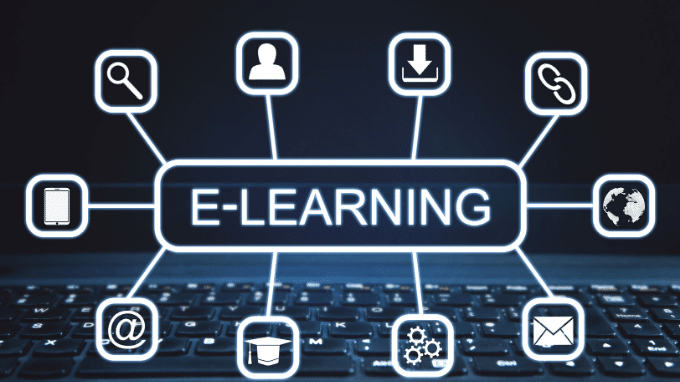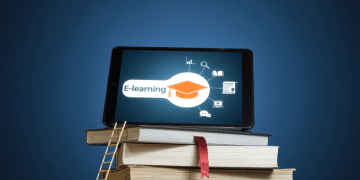How E-Learning Is Bridging Educational Gaps in South Africa?

Have you ever wondered if online learning could help close the education gap in South Africa?
It’s a significant question and one worth considering.
The educational system of South Africa has long battled disparity. From packed metropolitan classrooms to underfunded rural schools, a system that frequently cannot satisfy their needs has left thousands of students behind.
But something is changing.
Slowly, steadily, and with the help of technology, e-learning platforms are rewriting the rules.
Thanks to flexible distance learning courses, mobile learning tools, and a growing shift toward digital instruction, more students than ever before can access quality education—no matter their background or location.
In this article, we’ll explore how online education South Africa is bridging long-standing gaps, empowering students, and reshaping what learning looks like for future generations.
Because education shouldn’t be limited by a postcode.
The Education Gap in South Africa: A Quick Reality Check
Let’s start with the facts.
South Africa has made major strides in increasing access to education. But deep inequalities still exist.
According to the Department of Basic Education:
- 1 in 3 learners doesn’t make it to matric
- Many rural schools lack internet, libraries, or qualified teachers
- Textbooks arrive late—or not at all—in some provinces
- Urban schools are overcrowded, and classroom sizes can exceed 40+ students
Then there are the challenges of tertiary education:
High costs, long commutes, limited space, and entry requirements that exclude many promising students.
These problems are real. But e-learning is providing new solutions.
You may also like: Beginner’s Guide to Financial Literacy in South Africa (Free Course Inside)
E-Learning Platforms Changing the Game
E-learning platforms use the internet to deliver learning material—videos, assessments, live lessons, or digital textbooks—straight to your device.
This flexibility is what makes online education South Africa so powerful.
Let’s look at how it’s making an impact.
1. Flexible Access for Rural and Underserved Areas
For many learners in rural Eastern Cape, Limpopo, or Northern Cape, quality education used to mean relocating—or missing out altogether.
Today, e-learning offers an alternative.
A student in Mthatha can now access the same online content as a learner in Sandton. All they need is:
- A smartphone or tablet
- A stable (even if limited) internet connection
- Access to free or low-data platforms
Example:
During COVID-19, the DBE launched the Zero-Rated Educational Sites initiative, giving students free data access to over 30 platforms.
This meant learners could access lessons, videos, and assignments without paying for data.
For many, it was a game-changer.
2. Self-Paced Learning That Empowers Every Student
Every learner is different.
Some need more time. Others fly ahead.
Traditional classrooms can’t always cater to both. But distance learning courses let students move at their own pace.
Self-paced learning allows
- Revisiting content as many times as needed
- Flexible study hours (great for working students)
- Less pressure, more confidence
Whether you’re a Grade 11 learner revising for finals or a 40-year-old parent chasing a diploma, e-learning makes it possible to learn on your terms.

3. Expanding Access to Higher Education
Let’s face it—university isn’t affordable for everyone.
But online courses now provide credible, certified alternatives.
Top South African universities like UCT, Stellenbosch, and Wits now offer online short courses, while platforms like UNISA, GetSmarter, and Fineduza support remote academic growth.
This means:
- No relocation costs
- No student housing expenses
- Lower course fees
- Learn while working or parenting
E-learning is making higher education more inclusive than ever before.
4. Supplemental Support for Public Schools
Many schools now use e-learning platforms to complement the national curriculum.
Tools like:
- Snapplify – digital textbooks
- Khan Academy – maths tutorials
- Paper Video – exam preparation
- Fundza Literacy Trust – reading for teens
- Siyavula – science and maths practice
Even WhatsApp-based learning, like the TULA mobile bot, helps learners access real-time support using platforms they already use.
This blended approach improves performance, especially for learners who lack home support or extra tutoring.
Read More- Top Online Learning Platforms for South African Students
5. Reducing Barriers for Working Adults and Parents
Traditional classroom learning isn’t practical for everyone.
Thousands of South Africans are returning to school or upskilling—but need options that fit into busy lives.
Distance learning courses offer:
- Asynchronous lessons (watch anytime)
- Short-term qualifications
- Affordable pricing
- Career-relevant content
Whether you’re studying accounting at night or completing your matric online, e-learning gives you a second (or third) chance.
Distance Learning and Study Tips That Make It Work
Online learning takes more than just a device and data.
You need structure, support, and good habits.
Here are proven study tips to succeed in an e-learning environment:
-
Set a Weekly Learning Schedule
Map out your study blocks. Include breaks, deadlines, and review days.
-
Use a Dedicated Study Space
Keep distractions away. Even a quiet corner can become your “study zone.”
-
Stay Connected
Join WhatsApp groups or online forums. Learning doesn’t have to be lonely.
-
Take Regular Breaks
Use the Pomodoro technique: 25 minutes study, 5 minutes break.
-
Reward Yourself
Finished a module? Submit an assignment? Celebrate with something small.
These small wins build momentum and keep you moving forward.

Real South African Voices: E-Learning in Action
Thuli, 24 – Matric Repeater, KwaZulu-Natal:
“I couldn’t afford to redo matric full-time. But Paper Video helped me study on my phone. I passed and now I’m applying to UNISA!”
Johan, 36 – Working Father, Cape Town:
“Studying online let me upgrade my qualifications without quitting my job. My evenings became my lecture hall.”
Nandi, 19 – University Student, Gauteng:
“Wi-Fi at home isn’t reliable, so I downloaded my lectures at the library. The flexibility helped me stay on track.”
Challenges Still to Overcome
E-learning isn’t perfect.
There are still barriers to address:
- Data costs – Although many platforms are zero-rated, mobile data remains expensive.
- Device access – Not all students own smartphones or laptops.
- Electricity and load shedding – Interrupts learning flow and access.
- Self-discipline – Some students struggle without structure or in-person support.
But with continued investment from government, private sector, and NGOs, these gaps are shrinking.
The Future of Education: Hybrid and Inclusive
E-learning isn’t replacing traditional education—it’s complementing it.
We’re heading toward a hybrid future:
- In-person classrooms enhanced with digital content
- Teachers using tech to differentiate instruction
- Students learning beyond the classroom walls
- Adults accessing micro-credentials to boost careers
The beauty of e-learning is that it meets learners where they are—not where they’re expected to be.
Conclusion: E-Learning Is Empowering a New Generation
In a country with massive educational inequality, e-learning platforms are providing new hope.
They’re not a magic fix.
But they’re a powerful tool.
A tool that lets a rural learner revise for the matric.
A single mom earns a qualification after hours.
A struggling student finds a second chance.
Online education in South Africa is more than digital content—it’s a bridge to opportunity.
And with the right tools, support, and commitment, every South African has a chance to cross it.
FAQs on South African E-Learning
-
Where should I begin my online South African study journey?
You need a smartphone, tablet, or computer, consistent internet—even basic data—and access to an e-learning platform or course provider.
-
Are employers in South Africa aware of online courses?
Yes, assuming they have accreditation. Search for vendors connected to reputable private colleges, UCT, or UNISA.
-
Can I study for free online in South Africa?
Indeed. Free or subsidised choices abound on sites including Fineduza, SmartAboutMoney, Siyavula, several Coursera or FutureLearn courses.
-
How can I keep inspired while learning virtually?
Establish objectives, keep to a calendar, arrange a study area, and use forums or study groups to network others.
-
For e-learning in South Africa, which platform excels?
That will rely on your needs. Regarding academic courses, check UNISA or GetSmarter. For skills-based learning, see Fineduza or Udemy. Discover Snapplify or Paper Video for school support.





